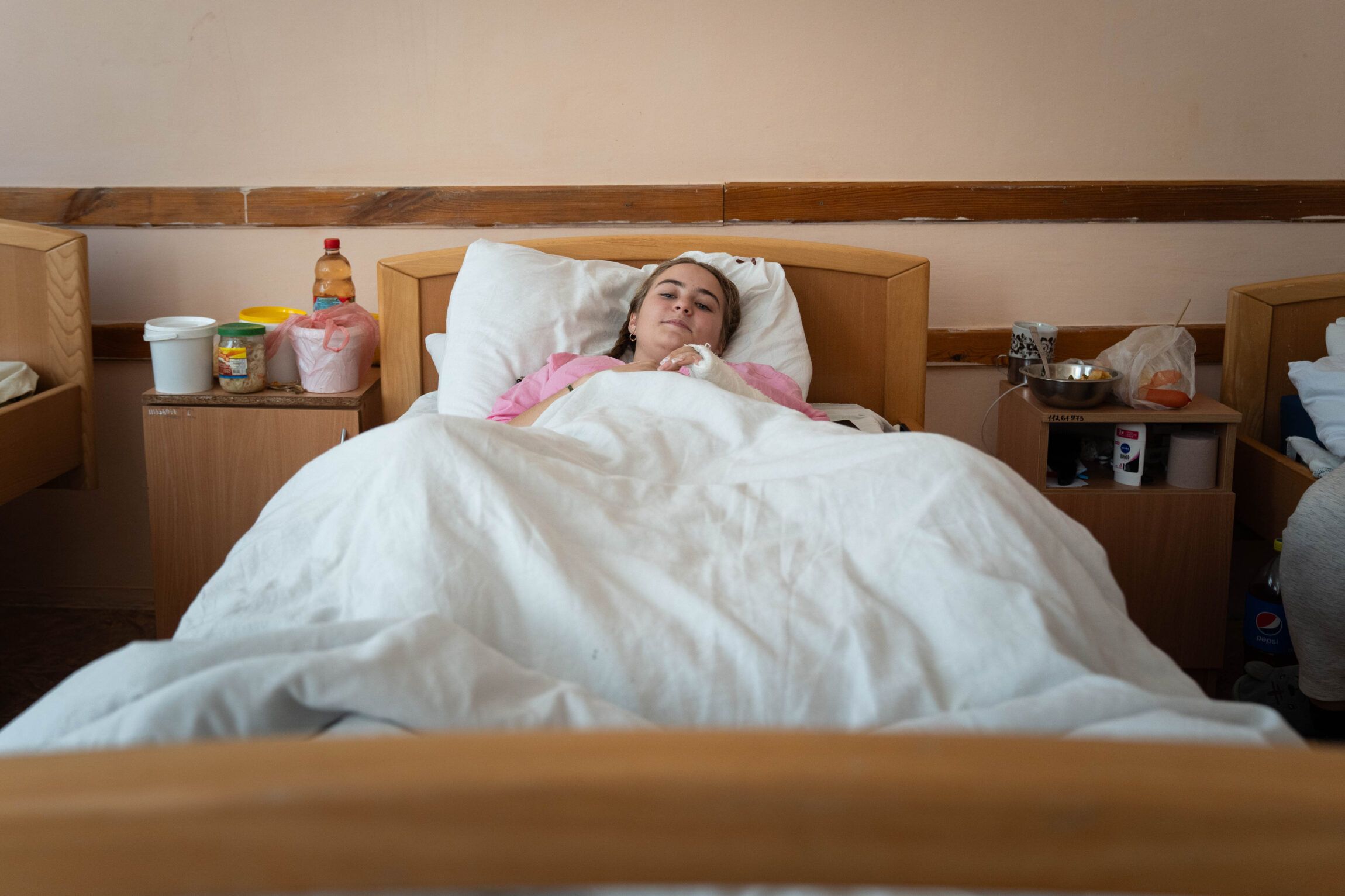Fifteen-year-old Karina lies immobilized in a shared ward at the Mykolaiv Regional Children’s Hospital orthopaedic surgery department. Her pelvis, fractured in three places, and a broken arm have confined her to bed since a car accident two weeks ago.
“We were driving, and I was sleeping in the back seat when a jeep hit us from behind at high speed. I was thrown out of the car and landed about 20 meters away on the roadside,” she recalls. Her father and brother, unconscious in the car, were unable to help. Karina, despite her injuries, managed to call for assistance.

The hospital, supported by DCA-NCA with funding from Norad, has become a lifeline for children like Karina. Insulated water tanks now provide clean drinking water, a repaired heating system keeps the wards warm in winter, and new modern bathrooms are all critical improvements to its outdated Soviet-era facilities.
Leonid days spent waiting for surgery
In the same orthopaedic surgery department, six-year-old Leonid spends his days in a small quarantine room with his mother, Lena. Born with cerebral palsy, Leonid walks on his tiptoes and is preparing for surgery on his feet.
“When the war started, doctors told us surgery was urgent so he could move quickly if needed,” Lena explains. Their village, only 35 kilometers from the frontline, made access to care even more precarious.

Leonid’s days are spent watching the world from his window and climbing on furniture to burn off energy.
“He’s already seen missiles and drones in the air. Every time he hears a siren, he gets scared,” Lena says, describing how even her energetic son is affected by the conflict.
Terrifying when the alarms go off
For Karina, the hospital is not just a place, where she is struggling to get better, but also one of anxiety.
“It’s really scary when the alarms go off,” she says. “Some children go into the hallway or the shelter, but I can’t move. I just lie here by the window. It’s terrifying.”
While acknowledging the challenges facing the hospital in times of war, Yevhen Shestopalov, head of the orthopaedic surgery department, has seen the hospital transform.
“The hospital was built during Soviet times to be cheap, not to prioritize children’s well-being,” he explains.
Now, with the support of DCA-NCA and Norad, Yevhen sees tangible changes.

“Children need good conditions to recover. Their environment can determine how quickly and effectively they heal,” he says, and continues:
“Right now, we receive children from both Mykolaiv and Kherson regions. We are the only children’s hospital in the area because the one in Kherson is closed—it’s too dangerous to keep open there. This means we also treat children injured during the war,” explains Yevhen Shestopalov, head of the orthopaedic surgery department at the children’s hospital.
DCA-NCA, in partnership with Southern Development Strategy (SDS), has worked on building new bathrooms for the children to give them the best possible settings for recovery.


